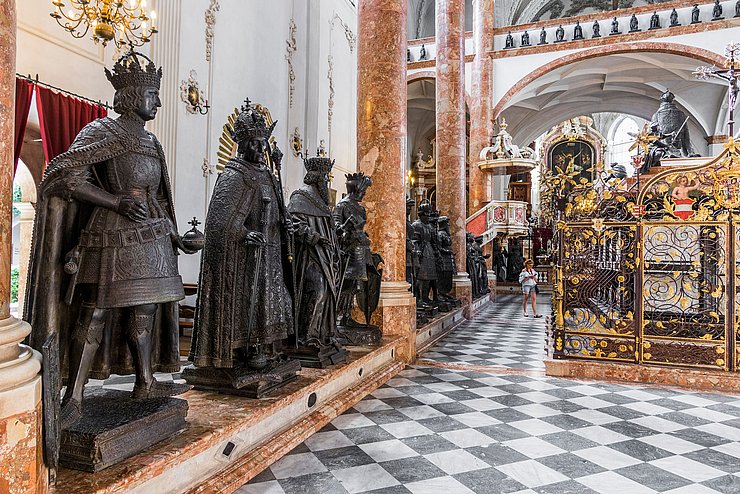History

The earliest evidence of human settlement in the area of the Tyrol dates back to the late Neolithic period, and man is known to have lived here ever since. In early history, the Tyrol was a gateway between north and south and a link between two cultural areas - a role that has very much shaped the history of the Tyrol and is still relevant today. The Via Claudia Augusta built by the Romans to connect southern Germany with northern Italy passed through the Tyrol.
In the 13th century, Count Meinhard II of Gorizia combined the titles to the lands to the south and north of the Brenner to create the County of the Tyrol. In 1363 Margarethe Maultasch passed on the County of the Tyrol to the Habsburg Dukes Rudolf, Albrecht and Leopold of Austria. That made the Tyrol one of the Austrian Hereditary Lands.
In the Late Middle Ages, a free peasantry was the norm in the Tyrol rather than serfdom.
In 1511 Emperor Maximilian I issued a national defence proclamation called the "Landlibell", which largely remained in force until 1918. Under this law the Tyroleans were granted the privilege of only having to do military service within the borders and in defence of the Tyrol.
Until the late 18th century, the Habsburgs respected the law and constitution that had developed in the County of the Tyrol. Only later did the Tyrol have to accept the role of a crown territory ruled from Vienna. In 1805 the Tyrol was ceded to the Bavarians, who suspended the constitution, increased taxes, made various ecclesiastical changes and introduced conscription. In 1809 the Tyroleans rose up against the Bavarians under Andreas Hofer. Three times they liberated the Tyrol, but after six months they had to bow to the sheer numbers of the Bavarian forces. As the leader of the revolt, Andreas Hofer is still an object of veneration for many Tyroleans today. After the First World War, the old Tyrolean territories south of the Brenner passed to Italy.
Tyrolean Regional Archives
The Tyrolean Regional Archives (in german) house a collection of significant documents produced by the regional authorities over the years. The documents are made available to the public, and the staff of the archives offer an information service on historical questions. They are also active in the field of basic research, and findings are published in a series called "Tiroler Geschichtsquellen".








